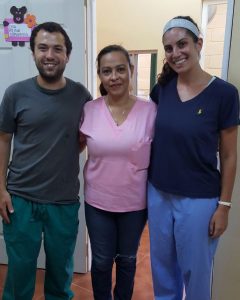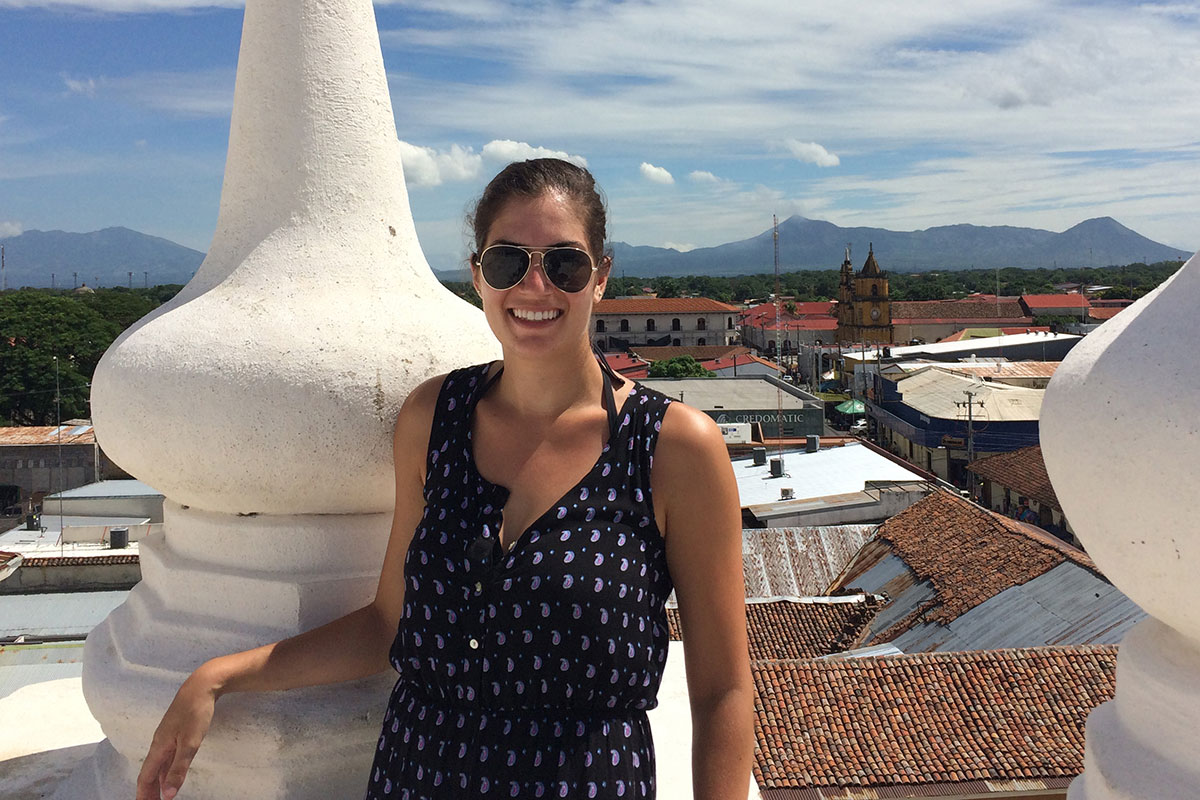An eye-opening experience interacting with an underserved population in one of the Western Hemisphere’s poorest countries is likely to follow Brooke Schuman throughout her career.
Next week, the second-year UConn medical student and aspiring pediatrician will share what she learned from her eight-week stay in Nicaragua with the school’s Global Health Program last summer.
She is among almost 100 students who are giving oral or poster presentations of their findings at Medical/Dental Student Research Day, Monday, Feb. 26, in locations throughout the academic building. Working with a physician at a government-run clinic in the rural community of Chacraseca, Schuman assisted with patients and interviewed mothers.
“I’d have them come to the clinic and meet with me, and I’d meet the kids,” Schuman says. “And I’d talk to the moms about what illnesses their children have, what health care access they have available, and certain factors that are barriers to their health care—time, distance, cost, availability, those kind of things, and what their needs are within the health care spectrum that is already in existence there, and then also what they don’t have. I’d also talk to them about their beliefs and attitudes about living with a child who has a lot of needs in that community.”
Schuman’s ability to speak Spanish helped overcome language and cultural barriers.
Her research focus was on descriptive information about families with children who have complex needs and the challenges that go with them. She connected with 40 families, spending 45 minutes to an hour with each.

She also got a first-hand look at a health care system starved for resources.
“The health post where I was working was pretty bare bones, and I thought that the hospital might have a lot more to offer people. I was very saddened to see that was not the case,” Schuman says. “I was totally unprepared for what a hospital would look like there. They have a few X-rays but they don’t really have a lot of advanced imaging. The hospitals are crowded and hot. That was hard to see, especially when we have this beautiful new hospital here.”
The closest hospital to Chacreseca is a 30-minute bus ride away, in the city of Leon. The physician in Chacraseca, Dr. Reina Somarriba, is the lone physician for the entire community, and therefore is only at the local health post three mornings a week.
“The survey results demonstrated the broad variety of barriers to children receiving the medical care they need, including several obstacles that are specific to this particular community,” Schuman says. “Interestingly, families also expressed high rates of fatalistic attitudes that were relatively independent of these reported barriers, leading us to believe there may be other factors that lead to fatalistic beliefs in this community. This is important for us to address, because fatalism can negatively impact health outcomes in terms of seeking care for the child.”
Classmate Alex Giuliano also was in Chacreseca last summer, for a clinical research project on diabetes. Two other UConn medical students shadowed Somarriba the year before.
“Dr. Somarriba is the most dedicated, hard-working doctor,” Schuman says. “Despite having so many limited resources, she cares so much about this population and these patients. She was an amazing role model to work with. She was a great teacher and she loved having the UConn students there with her. She was just this amazing influence on my life when I was there.”
Schuman and Giuliano are among 13 students who completed a summer research experience with the Global Health Program, and their presentations will be among the 61 medical posters, 28 dental posters, and 10 oral presentations at this year’s research day.
Last year’s featured 55 medical posters, 12 dental posters, and 11 oral presentations. A total of 65 students participated in 2016.
“From a medical standpoint, it’s obviously just a totally different type of medical education there than here, and seeing what I saw in clinic there is very different,” Schuman says. “We only get one summer in medical school, and I feel like I spent it in a really beneficial way, for my personal growth and for my medical growth. I hope this is something that I can continue with in my career.”



